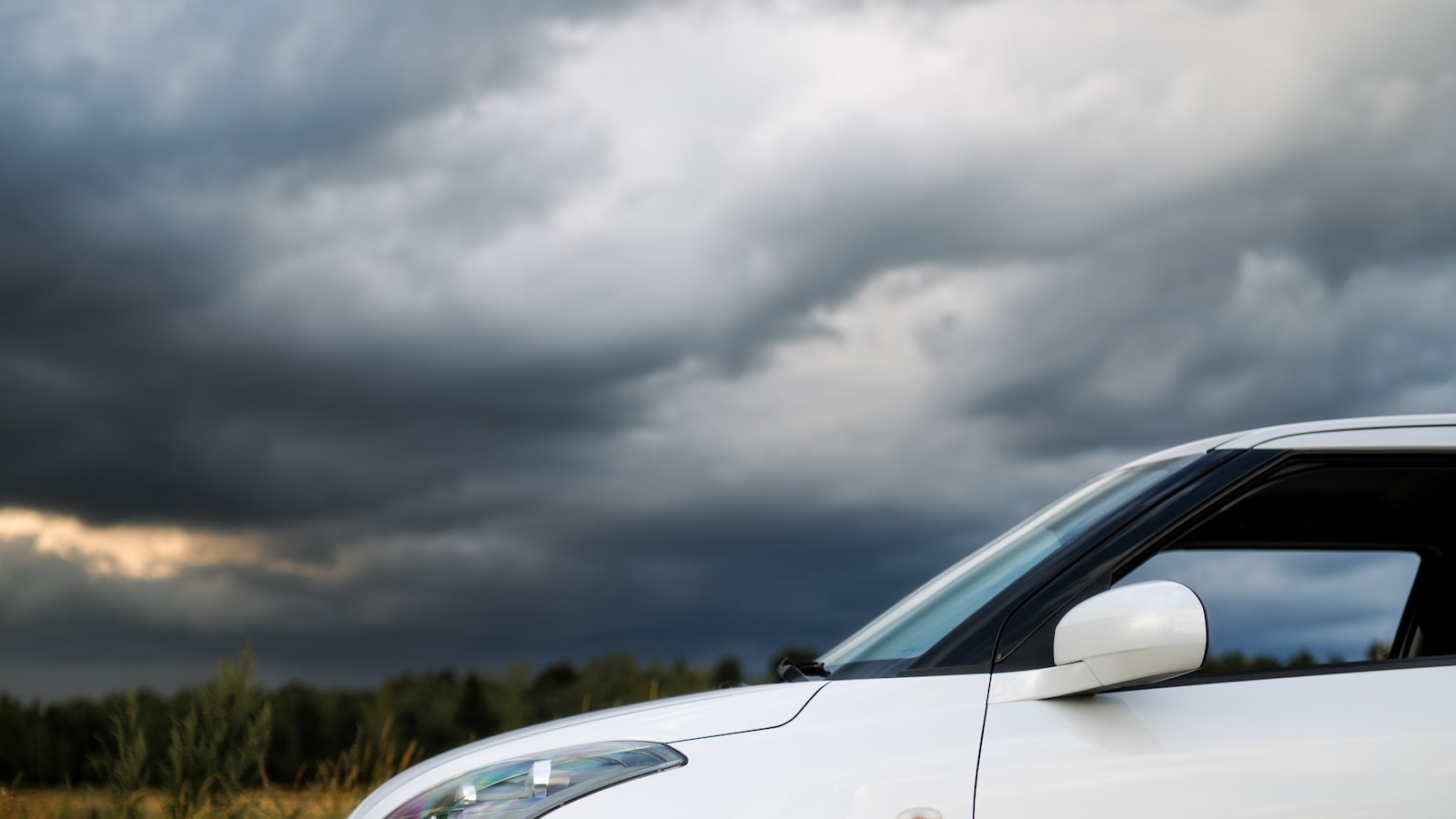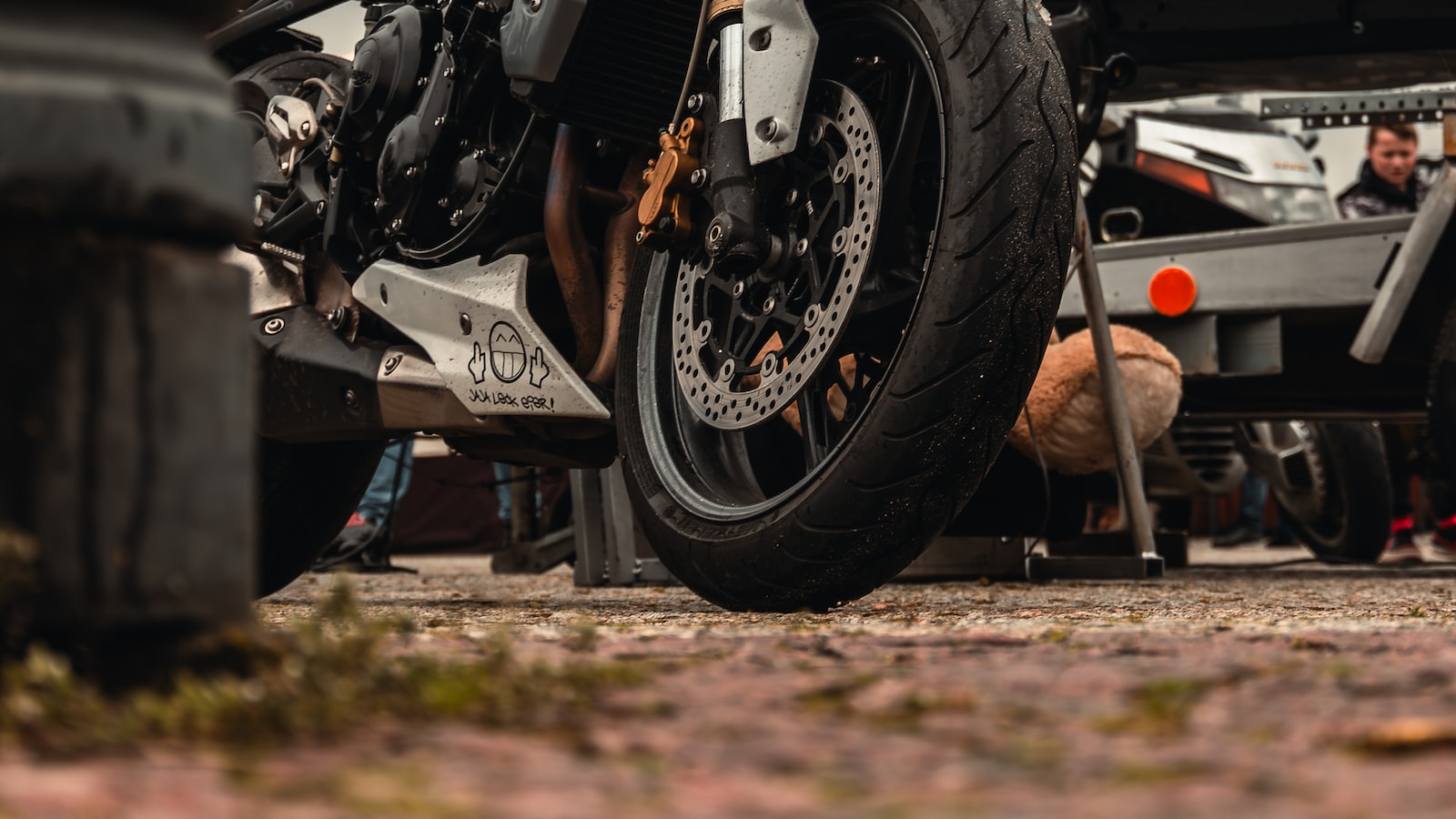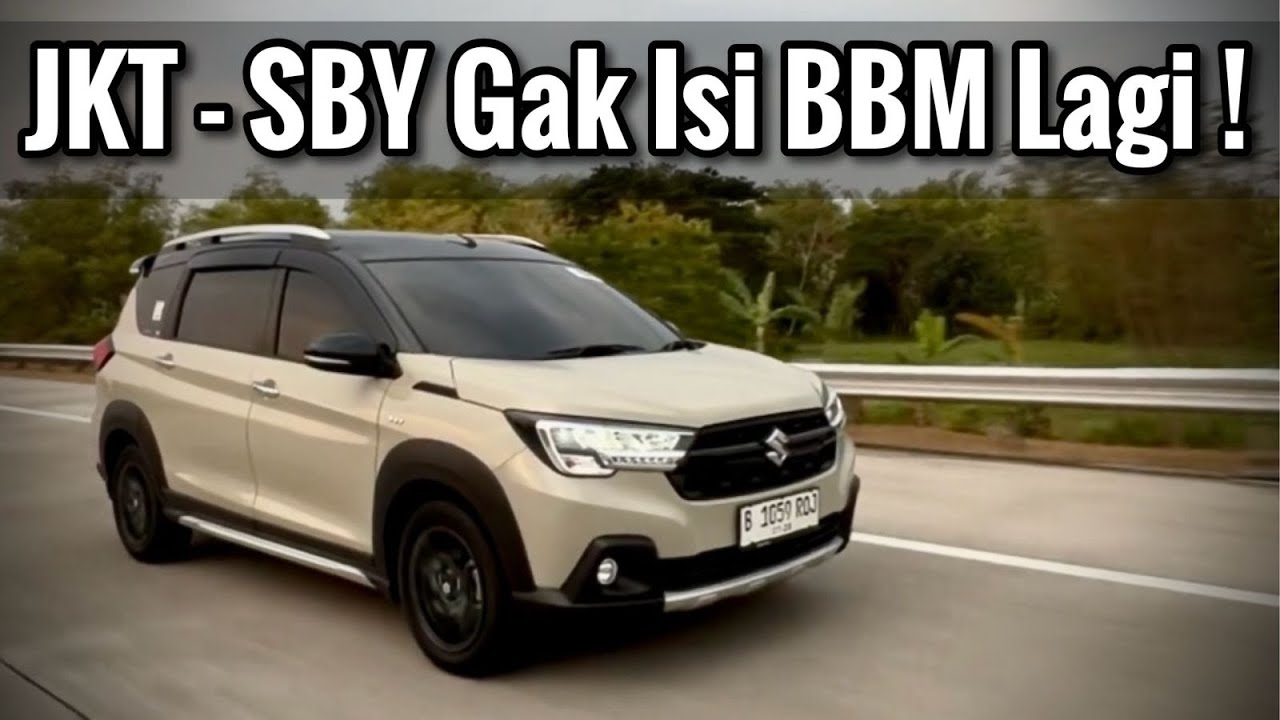Welcome to our blog post titled "SUZUKI XL7 Smart Hybrid Fuel Indicator Seems Inoperative". In this post, we will be discussing the interesting topics covered in the YouTube video with the same title. The video explores the Suzuki XL7, a hybrid crossover that stands out in the market. It highlights how this vehicle can travel from Jakarta to Surabaya with just one tank of gas, making it incredibly fuel-efficient. But that’s not all, we will also delve into the history of Suzuki XL7 and its unique characteristics, such as its transition from SUV to crossover and its affordability. We will also touch upon the user experiences and reviews shared by prominent automotive channels, showcasing the real-world capabilities of the Suzuki XL7. So, stay tuned as we explore the fascinating world of the Suzuki XL7 Smart Hybrid!
– A Unique History: Suzuki XL7’s Legacy of Being Different

The Suzuki XL7 has a unique history that sets it apart from other crossovers. Suzuki has always been known for creating vehicles that are different and stand out from the crowd. Just like the Suzuki Jimny, which was a pioneer in the compact SUV market with its small size and fuel efficiency, the XL7 follows in its footsteps by offering something truly unique.
Unlike other crossovers that have larger engines and consume more fuel, the XL7 is a smart hybrid that combines the benefits of an MPV and a crossover. It is one of the only crossovers in the world that almost feels like a hybrid vehicle. With its impressive fuel efficiency, the XL7 has the capability to travel from Jakarta to Surabaya on just one tank of fuel. This makes it a practical and cost-effective choice for those looking for a crossover with exceptional mileage.
– Suzuki XL7: From SUV to Crossover – An Unexpected Transformation

The Suzuki XL7 has undergone an unexpected transformation from an SUV to a crossover, marking a unique shift in its design and functionality. Unlike other crossovers in the market, the XL7 sets itself apart by incorporating the features of an MPV and boasting a hybrid engine, making it one of the few almost hybrid crossovers in the world. This crossover is capable of traversing long distances, such as from Jakarta to Surabaya, with just a single tank of fuel. It is truly a remarkable feat of engineering by Suzuki.
The history of the Suzuki XL7 is an intriguing one. Suzuki has always been known for creating vehicles that are in a league of their own, and the XL7 is no exception. Just like the iconic Jimny, which pioneered the compact SUV segment in Indonesia, the XL7 follows suit by offering something completely unique. While other SUVs come with larger engines and higher fuel consumption, the XL7 breaks the mold with its compact body and smaller engine. However, Suzuki’s desire to differentiate its vehicles has sometimes led to downgrading their class. The Suzuki Baleno, for example, initially debuted with the same class as the Civic, Corolla, and Lancer, but over time it shifted to a lower class equivalent to the Yaris or Jazz. Similarly, the first generation of the XL7, introduced in 1998 and brought to Indonesia in 2003, leaned more towards the SUV category rather than a crossover, resembling the Grand Escudo in appearance. Despite its appeal as a V6-powered SUV with a 2500 cc engine, the XL7 proved to be too expensive for the Indonesian market, especially without the option for 4×4 capabilities. As a result, it didn’t gain much traction in sales, and Suzuki ceased production of the XL7 in Indonesia after its initial generation. However, in 2020, Suzuki introduced the all-new XL7, which surprised everyone with its transformation from a pure SUV to a crossover. This new iteration of the XL7 broke away from its illustrious predecessor, focusing instead on the practicality and efficiency of an MPV. While it may have lost the grandeur of its name, the XL7 Hybrid proves to be just what Indonesian society needs – a car that goes from being fuel-consuming to fuel-efficient. This is evident in a 700 km drive from Jakarta to Surabaya, where the XL7 was able to cover the distance on just one tank of fuel, without the need for refueling along the way. The proof is in the pudding, and you can witness the journey firsthand on the motomobi and Fitra Eric channels. In addition to its fuel efficiency, the XL7 continues to impress with its performance on various terrains. Mamang, Om Fitra, and the motomobi team tested the XL7 on challenging uphill roads, resulting in a dirty and dusty exterior. Nevertheless, the vehicle’s durability and capability were clearly demonstrated during this review, showcasing its reliability and adaptability. It’s safe to say that the Suzuki XL7 has truly transformed itself, becoming an unexpected but welcome addition to the crossover market.
– Suzuki XL7 Smart Hybrid: The Solution to Indonesia’s Fuel Efficiency Needs

The Suzuki XL7 Smart Hybrid is a crossover vehicle that is based on the concept of an MPV. It is the only crossover in the world that is almost hybrid, making it a unique solution to Indonesia’s fuel efficiency needs. With the Suzuki XL7 Smart Hybrid, it is possible to travel from Jakarta to Surabaya with just one tank of fuel, providing a cost-effective and eco-friendly option for long-distance travel.
Suzuki has a history of producing vehicles that are unmatched in their class, and the XL7 is no exception. Just like the iconic Jimny, which was the pioneer of compact SUVs in Indonesia, the XL7 stands out with its distinctive features. While other SUVs have large and fuel-consuming engines, the XL7 comes with a smaller and more efficient engine, catering to the needs of modern travelers.
In the past, Suzuki has often taken a unique approach to differentiate its vehicles from the competition. For instance, the Suzuki Baleno was initially released with the same class as the Civic, Corolla, and Lancer, but it has now been positioned in a lower category alongside the Yaris and Jazz. This trend can also be seen in the XL7, a crossover that has strong SUV characteristics. While the first generation of the XL7 was introduced in 1998, it was only available in Indonesia in 2003. It resembled an SUV, particularly the Grand Escudo, and had a V6 engine with a capacity of 2500 cc. However, its high price made it less accessible to the Indonesian market, and the absence of a four-wheel drive option further limited its appeal. As a result, only the first generation of the XL7 was sold in Indonesia for many years, and there were no signs of the second generation until 2020.
In 2020, Suzuki Indonesia surprised the market by introducing the new Suzuki XL7. Although it was initially believed to be a pure SUV, it turned out to be a crossover built on the foundation of an MPV. This is where the uniqueness of the XL7 Smart Hybrid shines. Despite dropping a class, it offers exactly what the Indonesian market needs – a fuel-efficient vehicle. It has been tested and proven that the XL7 can travel a distance of 700 km from Jakarta to Surabaya with just one tank of fuel, providing undeniable evidence of its fuel efficiency. For a firsthand experience, you can check out the journey on the Motomobi and Fitra Eric channels.
The Suzuki XL7 Smart Hybrid is not just a fuel-efficient vehicle; it also impresses with its performance on varied terrains. It has been put to the test by both Fitra and the Motomobi team, taking it on uphill roads covered in dust and grime. The XL7’s capabilities have been thoroughly demonstrated, showcasing its durability and reliability.
In conclusion, the Suzuki XL7 Smart Hybrid is the perfect solution for Indonesia’s fuel efficiency needs. With its hybrid capabilities, cost-effective travel, and impressive performance, this crossover exceeds expectations and sets a new standard in the automotive industry. Say goodbye to fuel consumption worries and embrace the smart choice – the Suzuki XL7 Smart Hybrid.
– Reviewing the Suzuki XL7: From Jakarta to Surabaya on a Single Tank

The Suzuki XL7 is a unique crossover based on an MPV platform, and it is the only crossover in the world that is almost like a hybrid. It is capable of traveling from Jakarta to Surabaya on a single tank of fuel. The Suzuki XL7 Smart Hybrid is a welcome addition to the motomobi channel.
Suzuki has a history of creating cars that are in a league of their own, such as the iconic Jimny. The Jimny was the pioneer of compact SUVs in Indonesia and had no rivals at the time. Similarly, the Suzuki XL7 sets itself apart by lowering its class. While other SUVs have big and fuel-hungry engines, the XL7 comes with a small and efficient engine. The XL7 is not just a crossover; it has strong SUV characteristics. The first generation of the XL7 entered the Indonesian market in 2003 and was more SUV-like than a crossover, resembling the Grand Escudo. However, it was considered expensive for Indonesian consumers, and its lack of 4×4 capabilities hindered its sales. Despite this, the first generation of the XL7 was enjoyed by many Indonesians.
To conclude, the YouTube video titled “SUZUKI XL7 Smart Hybrid Indikator Bensin Seakan Gak Berfungsi” provides an intriguing insight into the Suzuki XL7 Smart Hybrid model. This crossover, based on the MPV platform, offers a unique combination of power and fuel efficiency. Historically, Suzuki has always been known for creating vehicles that stand out from the crowd, and the XL7 is no exception.
The XL7’s predecessor, the XL7 generation one, gained popularity due to its SUV-like features and V6 engine. However, it was deemed too expensive for the Indonesian market and lacked the desired off-road capabilities. Despite this setback, there has been anticipation for the arrival of the second-generation XL7, which boasts a larger frame. In 2020, Suzuki Indonesia introduced the new XL7, but to the surprise of many, it had transitioned from being an SUV to a crossover built on an MPV platform.
This shift in class, although unexpected, has resonated well with Indonesian consumers who prioritize fuel efficiency and affordability. In fact, the video showcases the XL7’s exceptional fuel economy, with just one tank of fuel enabling a 700 KM journey from Jakarta to Surabaya. The evidence of this impressive feat can be witnessed on the Motomobi and Fitra Eric channels, where the XL7 is put to the test.
Additionally, the video features reviews by automotive enthusiasts who highlight the XL7’s performance on challenging terrains, as evidenced by the muddy tires after conquering uphill tracks. This further substantiates the XL7’s capabilities as a reliable and versatile vehicle for Indonesian roads.
In conclusion, while the Suzuki XL7 Smart Hybrid may have taken a step down in class, it has managed to capture the hearts of Indonesian drivers seeking a practical, fuel-efficient, and affordable crossover. Suzuki’s ability to adapt and offer unique solutions to meet customers’ demands is truly commendable. To learn more about the XL7 and explore additional engaging content, be sure to subscribe to the Motomobi and Fitra Eric channels.
